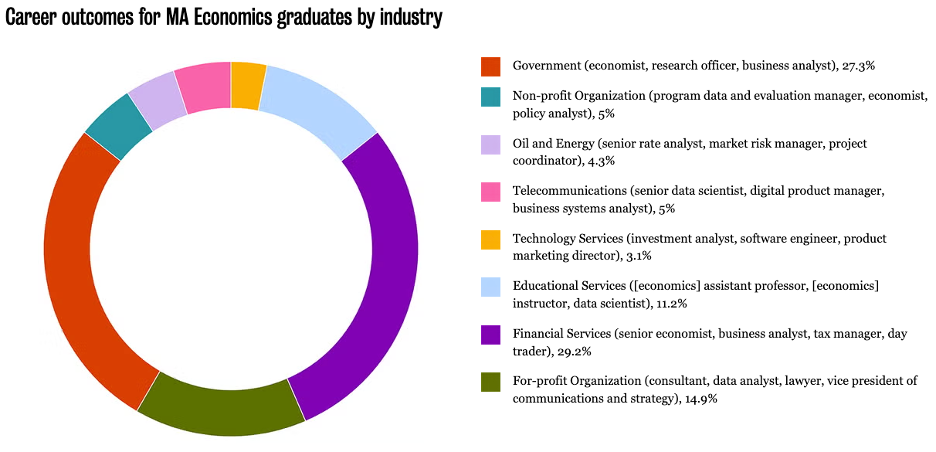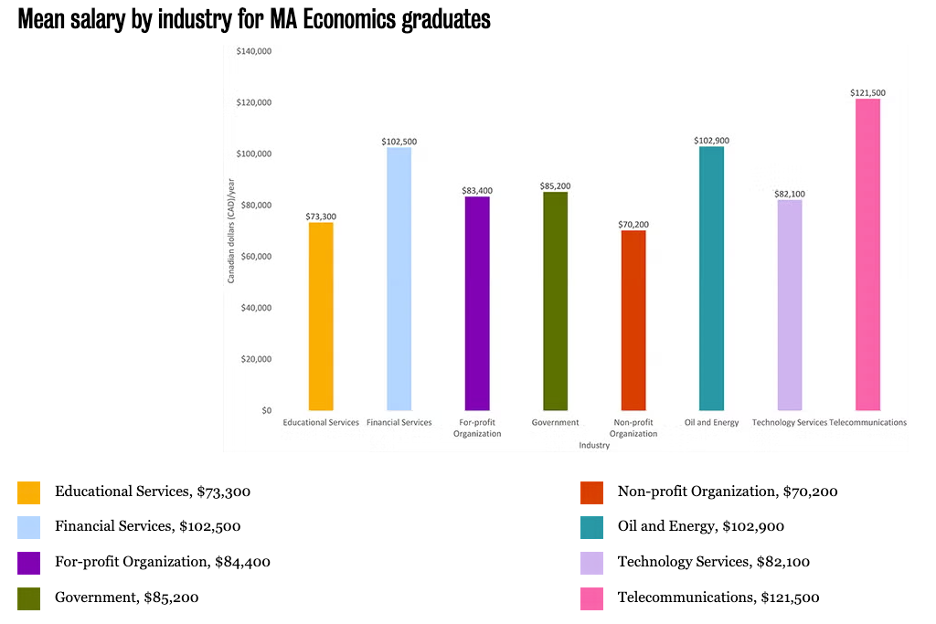What is economics?
At its core, economists study how people interact with the world around us, especially when faced with tough choices that result from scarcity.
Check out this video about what is economics and what economists do from the American Economics Association!
Why choose economics?
In an increasingly data- and analysis-driven world, economics courses can help build essential skills that help us understand and critically evaluate decisions and policies that affect our day-to-day life, and our society more generally. We frequently use numbers, graphs, and models to help explain the world that we see (and some things that we can’t see!) around us. Solid grounding in economics can help us be better-informed citizens, equips us with essential skills for success in numerous career fields, and is included as part of the curriculum in many disciplines and programs in fields from business and public administration, to healthcare and social sciences, and many more.
Check out the industries that economists are hired in and their median incomes below:


Why choose economics at Langara?
The faculty at Langara economics department pride themselves on getting you ready for success in further economic studies and helping you get to your goals. Students who successfully complete economics course work at Langara perform very well when they transfer into and take upper year courses at institutions like UBC, SFU, and UVic. If you want to learn economics content at a high level in a small classroom where you can interact with your course instructor on a regular basis, take economics at Langara!
Pathways in and through economics:
- Transfer to economics programs at universities:
- Transfer to UBC
- Transfer to SFU
- Transfer to UVic
- Transfer to economics programs at other institutions
- Transfer to business and commerce programs:
- Careers in economics (Source: UBC economics department website)
- Accountant
- Budget supervisor
- Business development officer
- Compensation and benefits coordinator
- Computer programmer
- Demographer
- Economic analyst
- Economic development officer
- Financial auditor
- Financial controller
- Financial institutions examiner
- Financial officer
- Financial reporter
- Government official
- Health economist
- Human resources specialist
- Information systems manager
- Insurance sales agent
- Inventory analyst
- Investment analyst
- Labour policy analyst
- Labour relations officer
- Lobbyist
- Money market analyst
- Mortgage officer
- Pension plans administrator
- Pollster
- Purchasing agent
- Real estate development
- Social policy advisor
- Sports analyst
- Statistician
- Taxation manager
- Tax policy research manager
- Trust officer
Our Courses:
University Transferable:
- ECON 1110: Urban and Rural Economic Issues
- ECON 1119: Canadian Domestic and International Issues
- ECON 1220: Principles of Microeconomics
- ECON 1221: Principles of Macroeconomics
- ECON 2155: Understanding Globalization
- ECON 2210: Money and Banking
- ECON 2221: Strategic Thinking
- ECON 2260: Environmental Economics
- ECON 2280: Labour Economics
- ECON 2296: Managerial Economics
- ECON 2298: The Economics of Capital Assets and Project Evaluation
Not University Transferable:
- ECON 1195: Special Topics I
- ECON 1295: Special Topics II
- ECON 4800: Introduction to Microeconomics
- ECON 4810: Introduction to Macroeconomics
Upcoming Economics Course Offerings:
Fall 2025 Courses:
- ECON 1119
- ECON 1220
- ECON 1221
- ECON 2210
- ECON 2296
- ECON 4800
- ECON 4810
Spring 2025 Courses:
- ECON 1119
- ECON 1220
- ECON 1221
- ECON 2221
- ECON 2298
Summer 2025 Courses:
- ECON 1220
- ECON 1221
